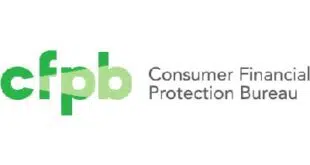Payment processor First Data Corp.’s Star electronic funds transfer network on Wednesday said it would license Visa Inc.’s so-called common application identifier (AID) that will facilitate chip-based debit card transactions compliant with the transaction-routing requirements of the Durbin Amendment in 2010’s Dodd-Frank Act.
The agreement with Visa could give Star, a major domestic-only debit network with about 20% to 25% of the PIN-debit market, an early advantage with debit card issuers as the networks fight for share while the United States converts from fraud-prone magnetic-stripe payment cards to more secure Europay-MasterCard-Visa (EMV) chip cards. JPMorgan Chase & Co., for example, on Tuesday said it plans to ramp up issuance of so-called chip-and-PIN cards.
The Durbin Amendment requires merchants to have at least two unaffiliated network choices for routing a debit card transaction, the theory being that more options could lower merchants’ interchange costs. “All of the issuers that are Visa on the front of the card and Star on the back of the card will be able to issue debit EMV because we now share a common AID,” Barry McCarthy, president of First Data Financial Services, tells Digital Transactions News. Star will use personal identification numbers or no cardholder verification method (CVM) on its common AID; the network also supports PIN-less and signature debit authentication.
“We’ve been very focused on finding a streamlined, very efficient way for…a common way forward for EMV and debit,” says Kimberly Lawrence, senior vice president of global corporate initiatives at Visa.
Lawrence notes that last July Visa and MasterCard agreed to license to each other their respective common AIDs so that a chip debit card with the Visa logo on the front could offer MasterCard’s Maestro PIN-debit network on the back, and a MasterCard debit card could offer Visa’s Interlink PIN-debit network. “What we’ve announced today with Star, you could have Maestro or Star enabled on the back of a Visa card,” she says.
Star’s move calls into question the future of the other PIN-debit networks’ efforts to find a Durbin-compliant chip-card routing solution. A number of them, including Star, banded together under the auspices of the Secure Remote Payment Council (SRPc) to develop a common AID. Ten of them, also including Star, in December formed the Debit Network Alliance LLC (DNA) to ensure that they have a competitive stake in the debit industry once the U.S. converts to the EMV standard.
Operationally, complying with Durbin’s routing requirements is easy to do with mag-stripe cards but difficult with EMV cards. Plus, Visa and MasterCard Inc. own the EMV technology. For more than a year, the EFT networks, which fear being marginalized, and Visa and MasterCard, which have made various proposals, have been trying but haven’t yet reached a solution acceptable to all.
There has been, however, some agreement between the two camps. Last summer, the PIN-debit networks agreed to let Visa and MasterCard applications work on U.S. chip cards with the common AID and control such functions as offline and online authorization and security. But the PIN-debit networks want ownership of the common AID to be held equally by all networks, with each having an equal voice in governance.
Further complicating the situation is the court fight over the Federal Reserve’s rule implementing the Durbin Amendment. A U.S. district judge last July overturned the rule, saying the Fed didn’t carry out Congress’s wishes. The Fed is appealing.
By licensing Visa’s common AID, Star can get on with the EMV conversion without waiting for its peers or the legal dust to settle. McCarthy would not discuss terms of the deal, but says the licensing agreement does not involve royalty payments to Visa. “It’s truly a partnership…to accelerate debit EMV in the U.S.,” he says.
Paul Tomasofsky, executive director of both the SRPc and DNA, says Star’s “announcement on the surface is a good next step. The addition of all CVMs as part of the announcement is something that the Debit Network Alliance has advocated for quite some time,” he tells Digital Transactions News.
Tomasofsky adds, however, that for “a common solution to be common, it must include all networks. The Debit Network Alliance will continue to advocate for access to EMV technology, competition and innovation. The best solution is to have an industry for EMV that is an open-consensus one.”
McCarthy says First Data remains committed to resolving the EMV issues that all debit networks face. “We have been supporters of the SRPc and the DNA, whose purpose was get a common AID to support all CVM types and to be long-term in nature without creating preference for one network or another,” he says. “We are committed to [the] industry groups SRPc and DNA because we support the vision of those efforts.”
Visa has been in talks numerous EFT networks, according to Lawrence, but she would not say if any more deals like Star’s are imminent. She says Visa is not looking to generate revenues from licensing its common AID.
n
n
“It looks like First Data wants to get the process to deploy EMV (and near-field communication, or NFC) moving along,” Mott says by email. “They’ve invested a lot in anticipation of these deployments and appear to be pursuing the business potential at their doorstep—perhaps at the expense of waiting on [or] working toward a common debit solution that might better position—and protect—Star’s services in the future.”





